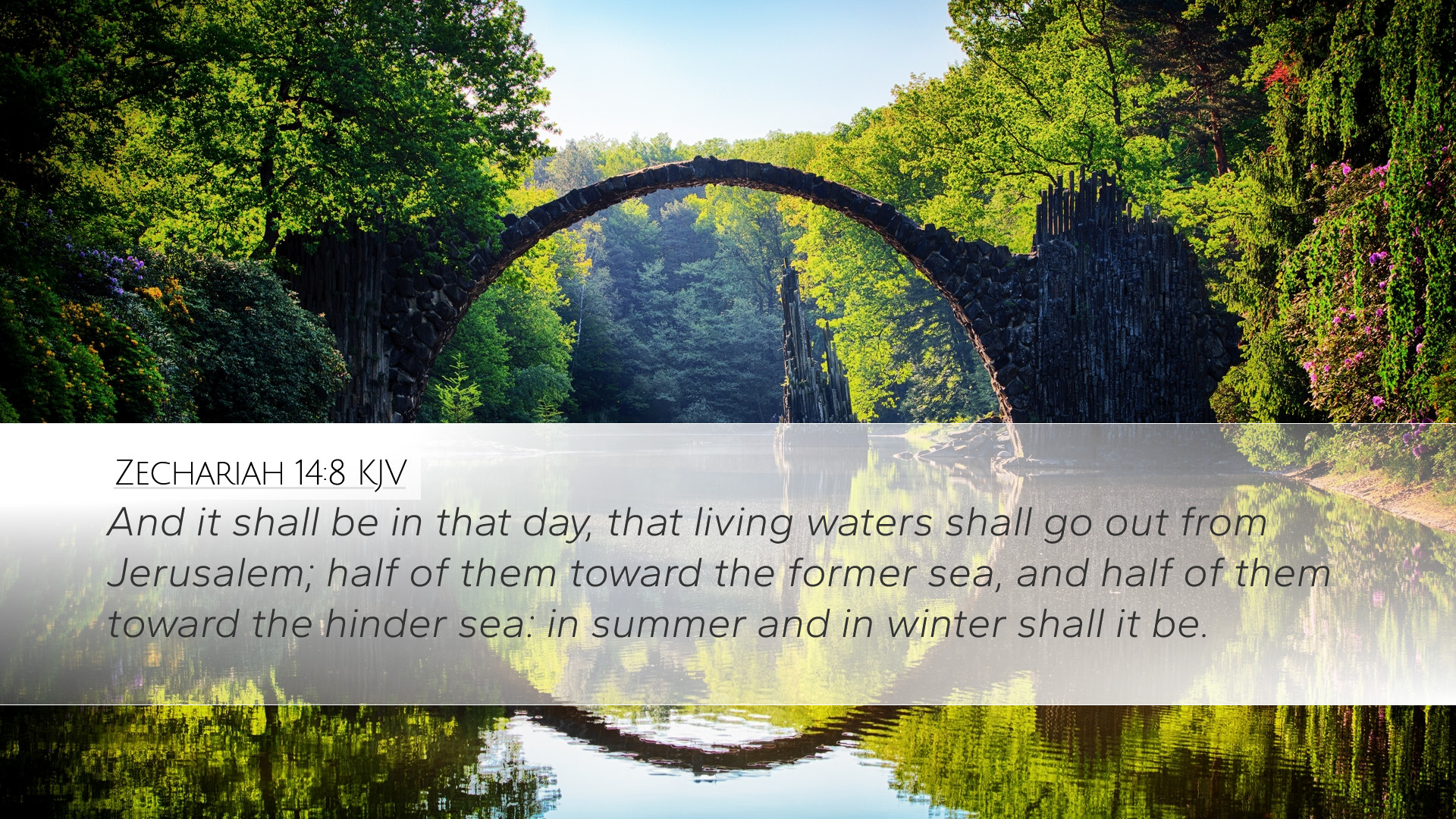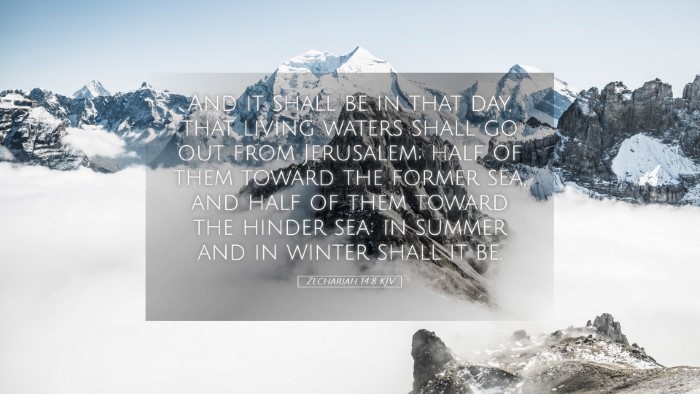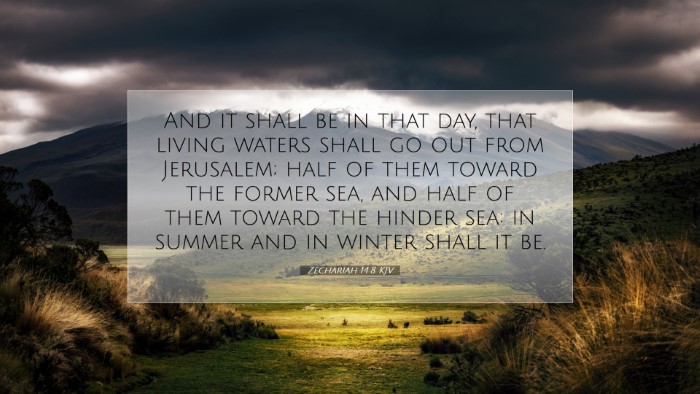Zechariah 14:8: "And it shall be in that day, that living waters shall go out from Jerusalem; half of them toward the former sea, and half of them toward the hinder sea: in summer and in winter shall it be."
Introduction
The verse Zechariah 14:8 presents a prophetic vision of transformation and divine provision. This imagery of "living waters" represents not only physical sustenance but also spiritual renewal. Various public domain commentaries provide insights into the deeper implications of this passage, connecting it to themes of eschatology, the character of God, and the blessings available to His people.
Living Waters: Symbolism and Meaning
The term "living waters" is significant in biblical literature, symbolizing abundance, purity, and life-giving properties. Matthew Henry explains that this water represents the gospel of Christ—a source of eternal life and sustenance for believers. The outpouring of these waters from Jerusalem signifies the central role of the city in God's salvific plan.
- Spiritual Life: The waters could reflect the Holy Spirit's role in regenerating and empowering believers.
- Physically Abundant: This imagery suggests a time of physical and spiritual prosperity for Israel, which is echoed throughout the prophetic literature.
Geographical and Eschatological Context
Zechariah's prophecy links the outpouring of these living waters to specific geographical bodies of water: the former sea (likely the Dead Sea) and the hinder sea (probably the Mediterranean Sea). Adam Clarke elaborates on this, noting that the waters' flow signifies the expansion of God’s covenant blessings to the nations. This indicates a time when God's presence will abundantly nourish not just the Israelites but all of creation.
Additionally, this verse finds its place in the context of eschatology—the study of the end times. Albert Barnes highlights that "in that day" references the period of the Messiah's kingdom, characterized by peace and divine favor. Such a time is anticipated to be marked by perpetual blessing, underscoring God's ultimate victory over sin and death.
Theological Implications
This verse challenges theologians to consider several crucial aspects of God's kingdom and His providence:
- God's Sovereignty: The verse affirms God's control over nature and history, directing the river of life to flow from His holy city.
- Universal Salvation: The distribution of the living waters to both seas symbolizes the universality of Christ's salvific work, where all creation is invited to partake in divine grace.
- Eschatological Hope: Believers are encouraged to look forward to the fulfillment of these promises as a source of hope and motivation for holy living.
Application for Believers
In light of Zechariah 14:8, believers today can draw several applicable lessons:
- Engagement with the Word: Just as living waters flow, Christians are called to immerse themselves in the Scriptures, which nourish and sustain spiritual growth.
- Mission Mandate: The outpouring of waters toward both seas emphasizes the Great Commission to share the gospel with all nations, actively participating in God’s redemptive plan.
- Hope in Trials: The promise of continual living waters reminds believers that God’s blessings can manifest even amid life's challenges, ensuring spiritual vitality regardless of external circumstances.
Conclusion
Zechariah 14:8 encapsulates a profound promise of God’s provision and presence among His people. From the insights gathered from Matthew Henry, Albert Barnes, and Adam Clarke, it becomes clear that these “living waters” not only live in the historic and prophetic context but also resonate deeply in the hearts of modern believers. As they reflect on this passage, pastors, students, theologians, and scholars are reminded of the transformative power of divine grace and the hope of a future characterized by unbroken communion with God.


